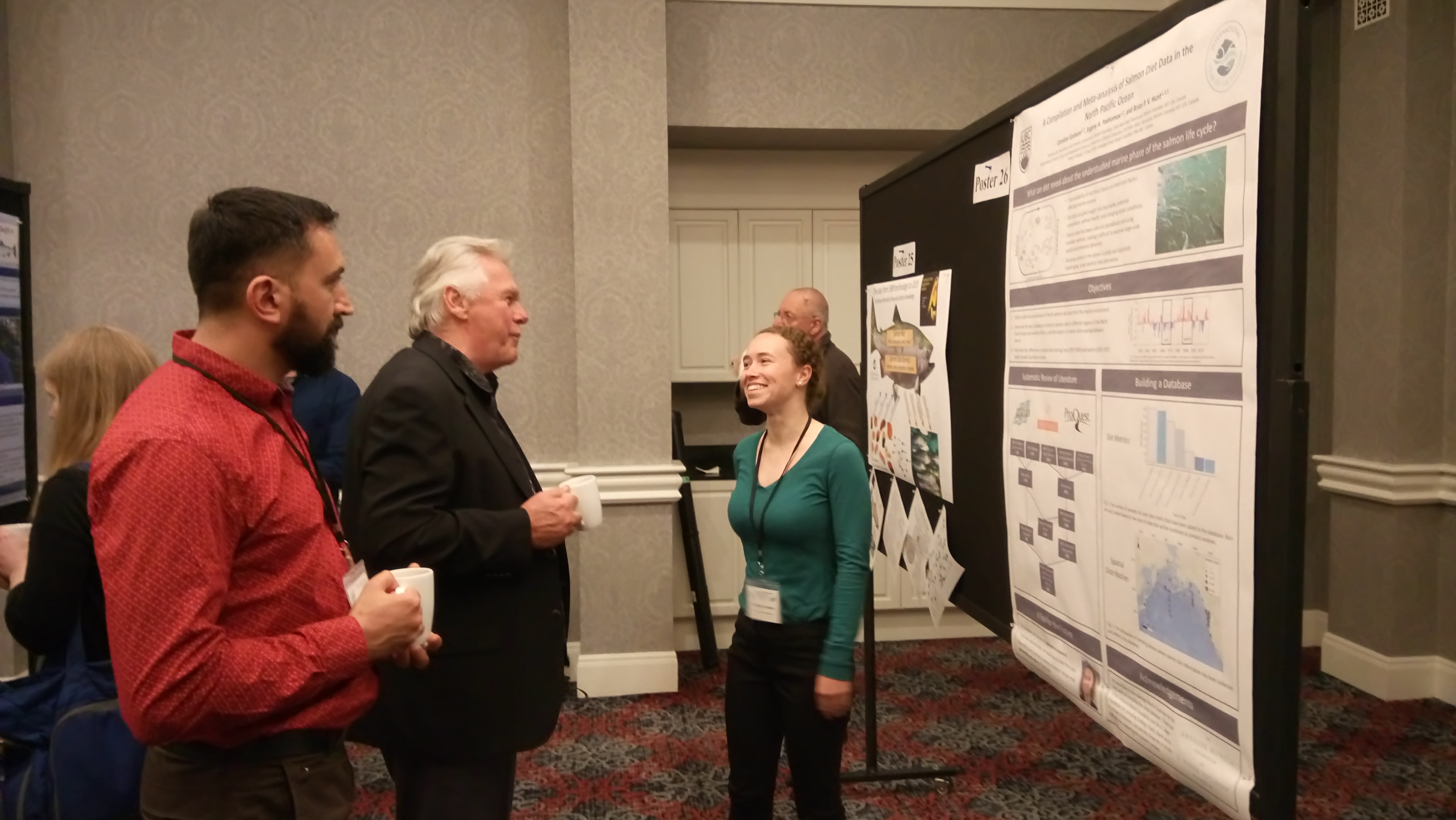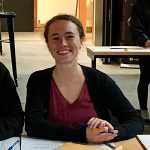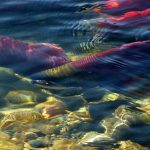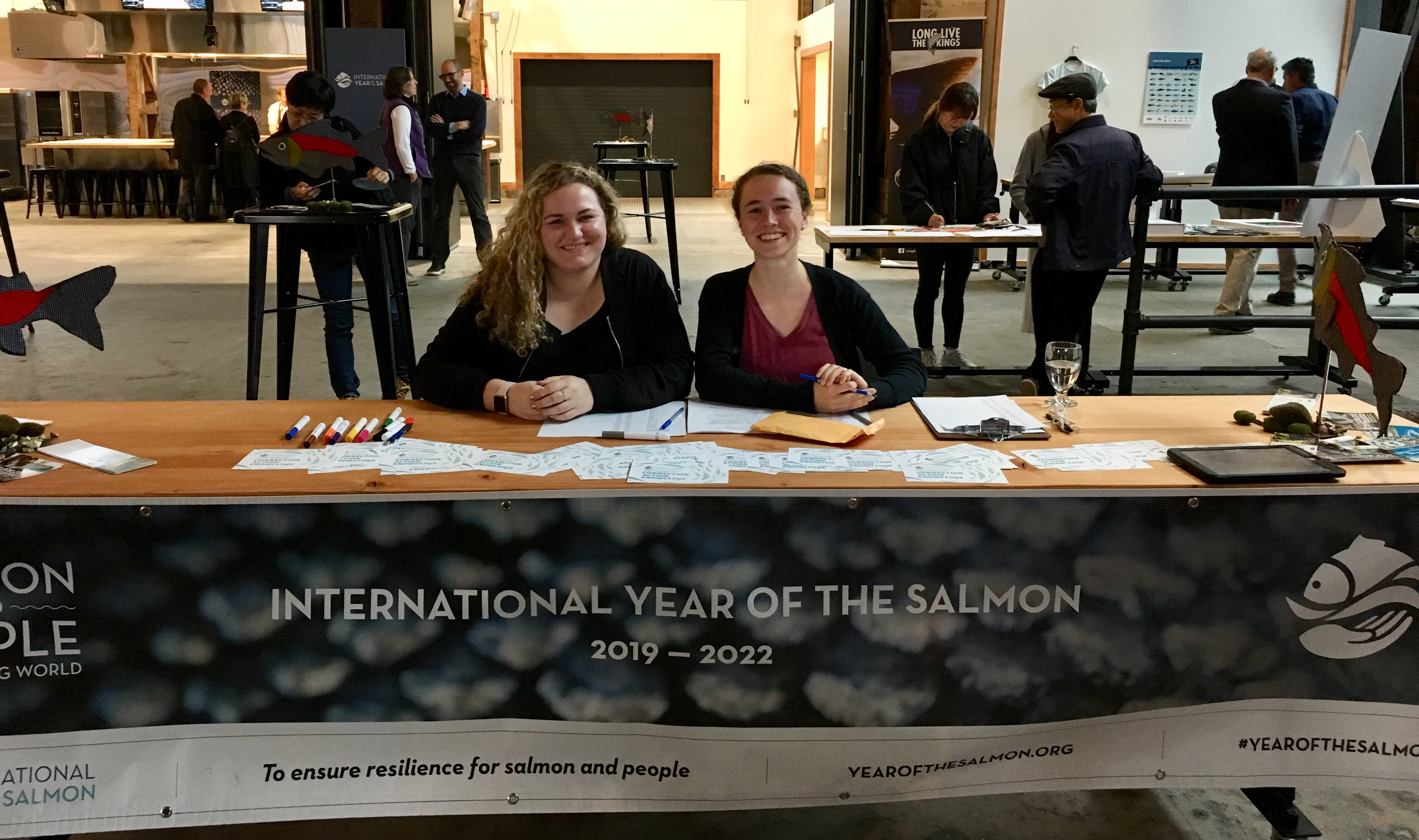
Caroline Graham presents an overview of her database project at the 2019 NPAFC-IYS Workshop. (Credit: North Pacific Anadromous Fish Commission (NPAFC))
Salmon play an incredibly important role in the lives of many people, from within Canada to other countries throughout the North Pacific. Finding out what different salmon species are eating and how this might have changed over the years across various regions could be key to understanding salmon health and conservation.
This is what Caroline Graham, a graduate student at UBC’s Institute for the Oceans and Fisheries (IOF), is researching. For her Master’s, Graham is creating an open-access database for salmon stomach contents in the marine environment under the supervision of Dr. Brian Hunt and with guidance from Dr. Evgeny Pakhomov.
“Across the Pacific, a lot of data are available on salmon diets but there’s currently no centralized hub for this information,” explained Graham, who is part of the Pelagic Ecosystems Laboratory at the IOF.

Caroline Graham. (Credit: NPAFC)
The database is meant to tackle this problem by compiling Pacific salmon stomach content information from different regions and countries into one source, painting a more holistic view of their diets. When the database is complete, researchers will be able to understand what prey has been found, historically, in the stomachs of certain salmon species during a particular period and in a specific area. They would also be able to visually interact with the data using maps or graphs, and extract this information for their own projects.
“It will be especially interesting to see how the Eastern Pacific data compares to the Western Pacific data, because there are very few comparisons between these regions,” Graham said.
As the 2018 recipient of the COSMOS Travel Award, Graham has been travelling to various locations in the United States to meet with potential project collaborators. The award is endowed by Dr. Daniel Pauly, a professor at IOF and principal investigator of the Sea Around Us, for an international graduate student to conduct research in their home country.
“I was excited to share my project with interested people and to see what other ideas salmon experts had in mind, and how they might find this resource useful,” Graham said. “The award gave me an opportunity to build a network for this project and get some feedback, which has been helpful in shaping the vision for this database resource.”
“The award gave me an opportunity to build a network for this project and get some feedback, which has been helpful in shaping the vision for this database resource.”
With the funding from the award, Graham travelled to Portland in May for the Second NPAFC-IYS Workshop on Salmon Ocean Ecology in a Changing Climate, which was held jointly by the North Pacific Anadromous Fish Commission (NPAFC) and the International Year of the Salmon (IYS). There, she presented an overview of her database project to a diverse group of researchers from all over the North Pacific, including those from the five major countries involved in the meeting: Canada, the United States, Russia, Japan and Korea. She also traveled to Washington to meet with scientists from the National Oceanic and Atmospheric Administration (NOAA).

Sockeye salmon.
In her work, Graham emphasized the importance of international collaboration and how it can open up new doors in research. “At the meeting in Portland, we had conversations with Russian scientists about collaborating to add some Russian data to our database, which would have been otherwise inaccessible to the rest of the North Pacific countries,” she explained.
Graham plans to travel more for the project in the future, perhaps to California, where the 2020 Salmon Ocean Ecology meeting is being held, or to Alaska to speak with other salmon scientists. While she is currently collecting diet data in the form of stomach contents, Graham added that eventually the database is also meant to encompass other types of diet information, like stable isotope and fatty acid data, to give a more complete view of the conditions that salmon face in the ocean.
“Salmon are such a socially, culturally, environmentally and economically important fish,” Graham said. “Ultimately, my goal is to continue to bring attention to them and to better understand what is happening to salmon during this time of rapid social and environmental change.”

Caroline Graham volunteers at the IYS’s “Salmon Scales Eats and Feats” outreach event. (Credit: NPAFC)
Tags: awards, Brian Hunt, IOF students, Pelagic Ecosystems Lab, Research, salmon